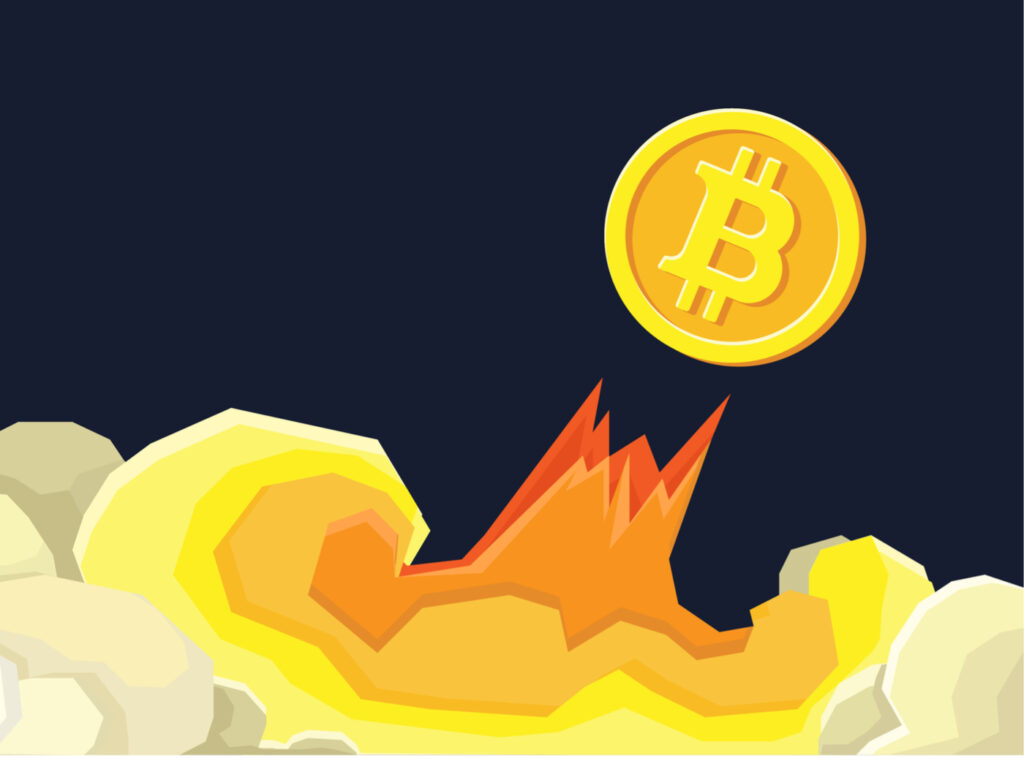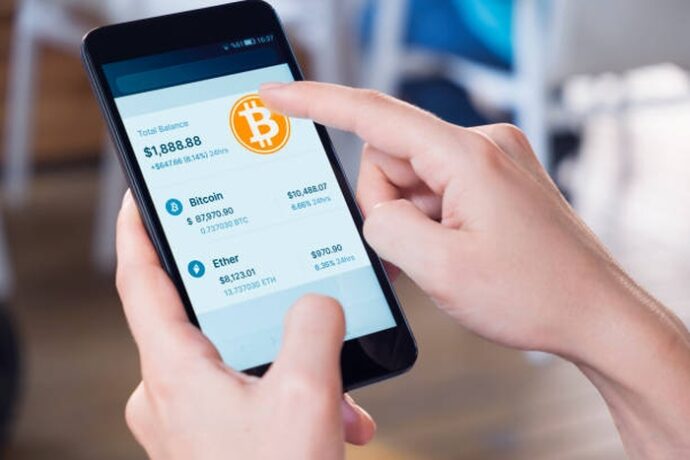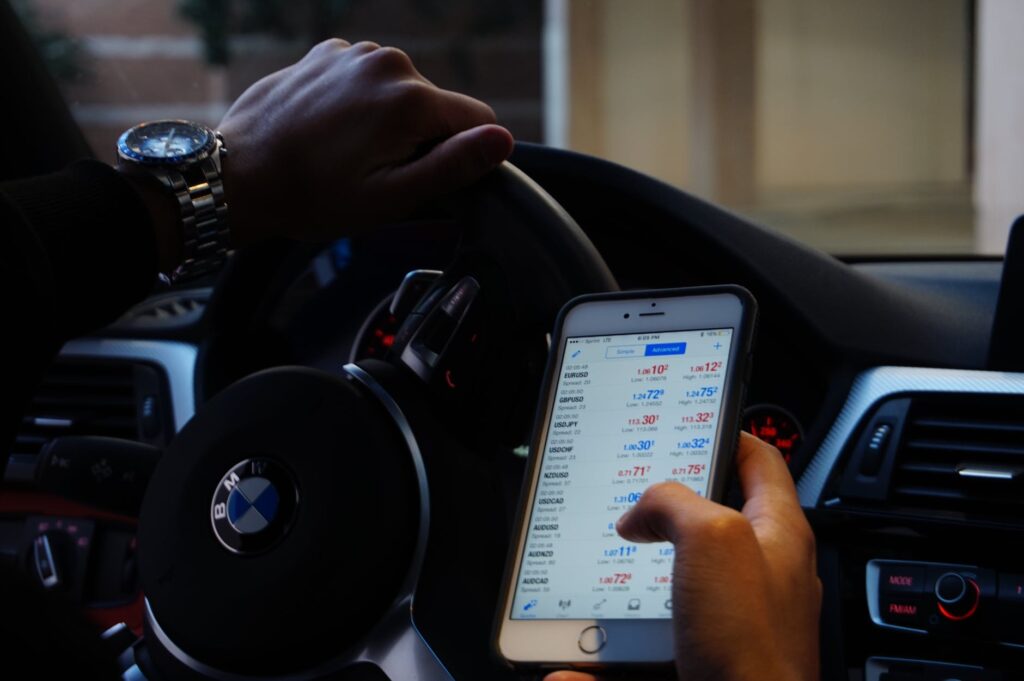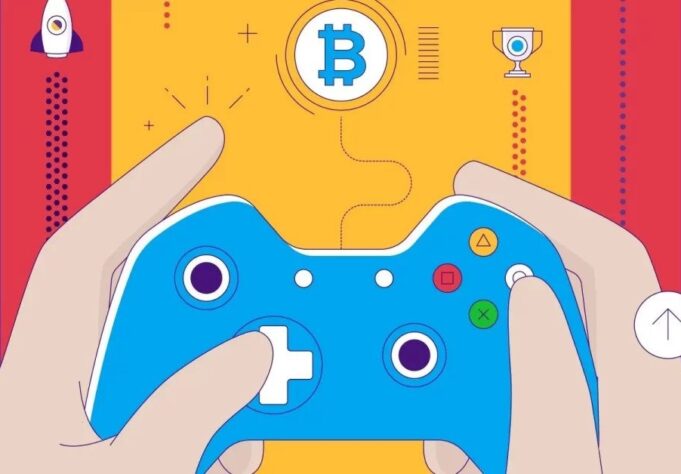If the advertising is to be believed, you have to invest in bitcoin to be up to date and win big. What you need to know if you get into the game and want to buy cryptocurrencies.
Bitcoin and cryptocurrencies offer opportunities, but they are above all risks. Here’s some advice for novices who lend themselves to the game.
5 questions about bitcoin:
1. Is it true that bitcoin is constantly rising?

It has sometimes been the case in the past, but that means nothing. It is true that several arguments speak rather in favor of a further rise in the price of bitcoin in the long term: the purely technical limitation of the maximum number of bitcoins available to 21 million creates an artificial shortage which automatically raises the price.
In addition, in times of pandemic, various central banks massively print money in order to finance all new state spending – this could trigger inflation for classic currencies and thus in turn support the price of bitcoin. Finally, several major investors have recently jumped on the bitcoin bandwagon, which adds credibility to the cryptocurrency. Click here if you want to get more information.
However, it is also true that this has repeatedly led to very strong upward and downward price fluctuations – much more pronounced than on the stock market. This high volatility attracts speculators who bet precisely on such fluctuations – which further reinforces the ups and downs. Price changes are also much less predictable and are ultimately based on irrational decisions by investors.
A company’s stock price is usually based on reasonably objective criteria such as revenue, earnings and business forecasts. The price of a conventional currency is influenced by measurable factors, for example the economic performance of the country concerned. For cryptocurrencies such as bitcoin, such basics of the real economy do not exist – ultimately only supply and demand determine price.
The large fluctuations as well as the unpredictability require strong nerves as well as significant financial reserves. Nobody guarantees that bitcoin will still have value even the day after tomorrow. You should only invest in bitcoin if you are aware of it and only if you are financially able to bear a total loss. Cryptocurrencies are recommended – if at all – only as small components of a larger portfolio, like gold.
2. How to do concretely if I want to buy bitcoin?

It would supposedly be easy: Some department stores have been selling bitcoin vouchers since last spring. Only, with the purchase of the voucher, nothing is done yet – in order to be able to use bitcoins, you need a so-called “wallet”, a digital wallet, otherwise the cryptocurrency cannot be exchanged or negotiated. There are several providers of such wallets, as well as different possibilities to access them.
The problem, however, is that if a hacker manages to gain access to your wallet, the bitcoins disappear, just like in the case of a wallet theft. The safest variant is what is called a “cold wallet” with which you load your private access key on a USB key which you then keep in the safest place possible.
Such cold wallets are on sale from online shops such as Digitec. You also need access to a bitcoin trading platform. There are countless of them; for beginners, Coinbase, Bitpanda or Bitstamp are recommended. If this seems too complicated for you, it is possible to open an account, for example with the Swiss online bank Swissquote and simply trade there bitcoins and other cryptocurrencies.
3. How do I proceed if I want to resell my bitcoins?

To get rid of cryptocurrency, you have to go through a specialized broker, a stock exchange or a specific smartphone application. A fee is again levied for this; however, they are usually not as high as when buying the voucher, where some companies charge up to 7.9%.
4. What if I don’t necessarily want to trade bitcoins but just want to participate in this adventure?

In this case, you can invest in different financial instruments, without buying bitcoins directly. Admittedly, the American stock market supervisory authority has so far prevented the creation of a real bitcoin index fund that would allow a simple and inexpensive investment.
However, the Swiss exchange SIX lists various financial products that can be purchased from almost all banks, for example several “bitcoin tracker certificates” which in principle follow the evolution of the bitcoin price, with all the gains and losses that this implies. There are some that are issued in US dollars – on which there is therefore also a risk of loss of exchange – and others in Swiss francs – for which the fees are higher. Other products represent a basket of several cryptocurrencies, in which bitcoin weighs the heaviest.
What applies to all financial products is even more important here: investors should invest money only in a product that they understand, understand how it works and know the risks.
Before making any decision, you should have the operation of the product explained to you in detail by your bank adviser, including the resulting fees and costs. In addition, you should limit the investment to an amount that you could afford to lose if a sudden and complete drop in price were to occur.
5. How do I avoid being tricked by scammers?

The system behind bitcoin is in principle very resistant to tampering because all data and every transaction is recorded simultaneously in encrypted form on thousands of servers. Called “blockchain”, this technology certainly consumes a record amount of energy but it complicates the lives of fraudsters.
The problem is the existence of countless dubious providers, most often operating from abroad, who try to scam candid investors by phone, email or internet. Their so-called extraordinary investment opportunities are in reality pure fantasy products and money irretrievably lost because it is never invested in bitcoin. If however you want to invest in bitcoin, then never do it with a provider you did not know before.
In the end, a significant change
In fact, over the past few months we have witnessed a significant change in the attitude of the public authorities with regard to Bitcoin and crypto currencies. Thus, the USA and the United Kingdom have closed the offer of Bitcoin in the form of CFD swaps to individuals. Similarly, compliance procedures are increasingly reinforced, as evidenced by the SEC’s closure of a Bitcoin market open to Iranians for breaching American laws.
This can be seen as the end of a relatively benevolent attitude by central banks. They saw in Bitcoin not a threat to their privilege of issuing money, but above all a new technology making it possible to create an alternative financial ecosystem to the traditional traditional system. Thus, the ECB and many large European banks have pushed the use of blockchain as a tool for securitizing illiquid assets such as real estate, non-negotiable debts and even works of art.















